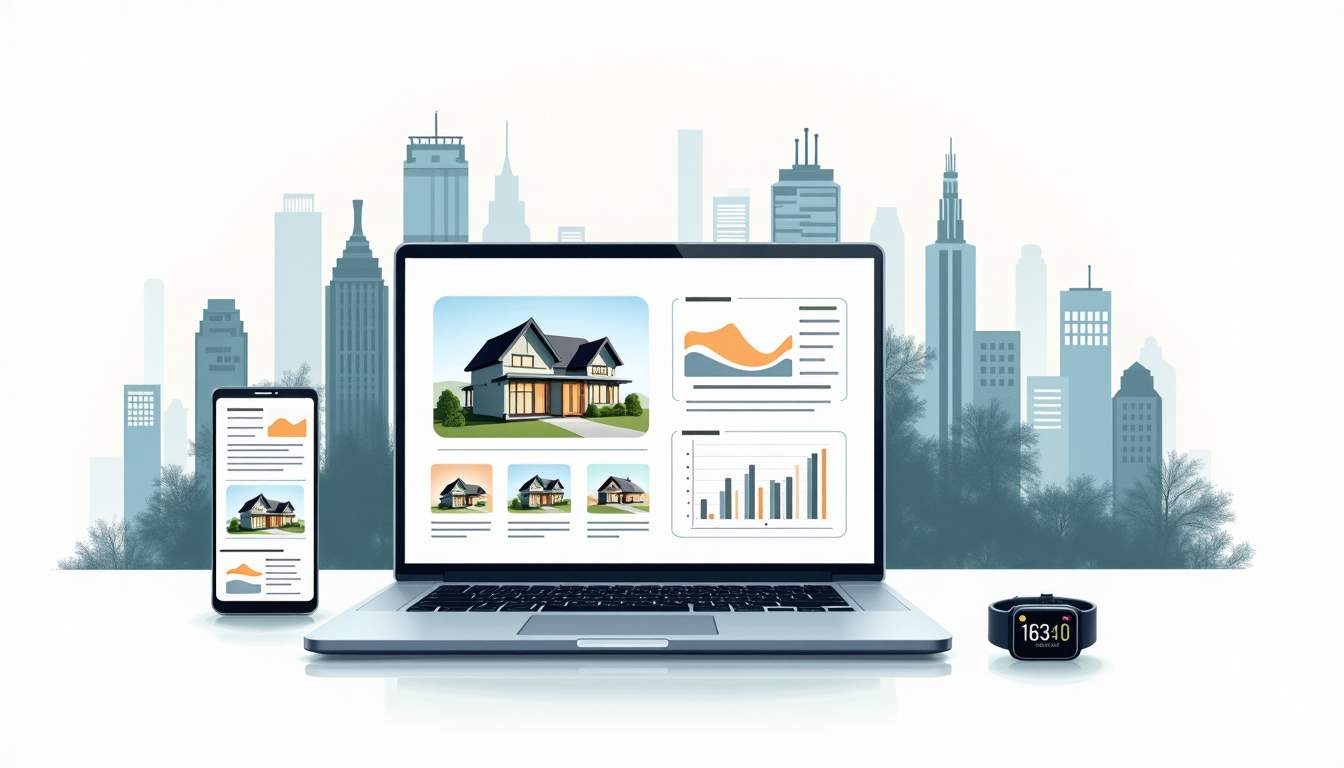Investing in property has long been considered a reliable way to build wealth and generate passive income. However, the process can often feel overwhelming, especially for new investors or landlords managing multiple properties. From finding the right investment opportunities to managing tenants and finances, the challenges are many. Fortunately, technology and innovative tools have transformed the landscape, making property investment more accessible and manageable than ever before.
This article explores some of the key tools and resources that can simplify property investment and management. Whether you’re a seasoned landlord or just starting out, these solutions can help you save time, reduce risk, and maximize your returns.
Finding the Right Investment Opportunities
One of the most critical steps in property investment is identifying properties with strong potential for appreciation or rental income. This requires thorough market research, analysis of local trends, and understanding of property values. Thankfully, there are powerful tools designed to streamline this process.
Property Search Platforms with Advanced Filters
Modern property search websites go far beyond simple listings. Platforms like Zillow, Realtor.com, and Rightmove offer advanced filters that help investors narrow down properties based on criteria such as price, location, property type, rental yield, and even neighborhood crime rates. Some platforms integrate historical price trends and forecast data to give a clearer picture of a property’s investment potential.
These tools enable investors to quickly compare multiple properties and identify those that fit their investment goals. For example, if you’re looking for a single-family home in a high-growth suburb with strong rental demand, you can set those parameters and receive curated listings tailored to your needs. Additionally, many of these platforms provide user-generated reviews and ratings, giving insights into the experiences of previous buyers and renters, which can be invaluable in assessing the desirability of a neighborhood. To explore more tailored property solutions, you can visit Property Store for expert insights and listings designed to match your investment goals.
Data Analytics and Market Insights
Beyond property listings, specialized analytics platforms provide deep insights into real estate markets. Services like Mashvisor and Roofstock offer data-driven analysis including rental income estimates, occupancy rates, neighborhood demographics, and cash flow projections. This information is invaluable for making informed decisions and avoiding costly mistakes.
These tools often include heat maps that highlight emerging neighborhoods, allowing investors to spot opportunities before they become mainstream. By leveraging data analytics, investors can confidently select properties with the highest potential for long-term growth. Furthermore, some platforms provide predictive analytics that can forecast future market trends based on current data, helping investors stay ahead of the curve and make proactive investment choices.
Virtual Tours and 3D Walkthroughs
The rise of virtual reality and 3D technology has revolutionized property viewing. Many listings now include virtual tours, enabling investors to explore properties remotely. This is especially useful for those investing in out-of-town or international markets.
Virtual tours save time and travel expenses, allowing investors to shortlist properties more efficiently. They also provide a more immersive experience than photos alone, helping to assess the condition and layout of a property before committing to an in-person visit. In addition to virtual tours, some platforms now offer augmented reality features, allowing potential buyers to visualize changes or renovations in real-time, enhancing their ability to envision the property’s full potential. This innovative approach not only streamlines the decision-making process but also empowers investors to make choices that align with their vision for the property, ultimately leading to more successful investments.
Streamlining Property Management
Managing rental properties can be time-consuming and complex, involving tasks such as rent collection, maintenance coordination, tenant communication, and legal compliance. Fortunately, property management software has evolved to address these challenges effectively.
Comprehensive Property Management Software
Platforms like Buildium, AppFolio, and TenantCloud offer all-in-one solutions for landlords and property managers. These tools automate rent collection with online payment portals, track maintenance requests, and maintain detailed tenant records. They also provide financial reporting features that simplify tax preparation and budgeting.
Using such software reduces administrative burdens and minimizes errors. Landlords can send automated reminders for rent due dates, screen potential tenants with integrated background checks, and even manage lease agreements digitally. This level of automation frees up valuable time and improves tenant satisfaction. Additionally, many of these platforms offer mobile applications, allowing landlords to manage their properties on-the-go, ensuring that they can respond to tenant needs promptly, regardless of their location.
Maintenance and Repair Coordination
Coordinating repairs and maintenance is often one of the most challenging aspects of property management. Apps like Property Meld and Fixflo allow tenants to submit maintenance requests directly through their smartphones. These platforms then notify the landlord or property manager and can even dispatch trusted contractors automatically.
By streamlining communication and tracking repair progress, these tools help ensure timely resolution of issues, which in turn helps maintain tenant retention and property value. Additionally, having a digital record of maintenance history can be crucial during property inspections or resale. Some advanced platforms even employ predictive maintenance technology, analyzing data to anticipate potential issues before they arise, allowing landlords to address problems proactively and avoid costly repairs down the line.
Tenant Screening and Communication Tools
Finding reliable tenants is essential for a successful rental business. Tenant screening services integrated into property management platforms provide background checks, credit reports, and eviction history. This helps landlords make informed decisions and reduce the risk of problematic tenants.
Moreover, communication tools embedded within management software facilitate clear and documented interactions between landlords and tenants. Whether it’s sending notices, sharing updates, or answering questions, having a centralized communication hub reduces misunderstandings and builds positive landlord-tenant relationships. Some platforms also offer features like tenant portals, where residents can access important documents, pay rent, and communicate with management, creating a seamless experience that enhances tenant engagement and satisfaction. Furthermore, these portals can serve as a valuable resource for landlords to gather feedback and insights, helping them to continuously improve their services and adapt to tenant needs.
Financial Management and Investment Tracking
Keeping track of finances is crucial for property investors to ensure profitability and compliance. From managing expenses to analyzing returns, having the right financial tools can make a significant difference.

Accounting Software Tailored for Real Estate
General accounting software may not always meet the specific needs of property investors. Fortunately, platforms like QuickBooks Online and Xero offer real estate-specific features or integrations with property management systems. These tools help track income and expenses, generate invoices, and manage tax deductions.
Some software solutions also support multi-property accounting, making it easier to monitor the performance of each investment individually. This granular insight is vital for making strategic decisions, such as whether to hold or sell a property.
Investment Performance Dashboards
Tracking the performance of property investments over time is essential for maximizing returns. Tools like Stessa and PropertyMetrics provide dashboards that consolidate data on rental income, expenses, mortgage payments, and equity growth.
These platforms offer visual reports and key metrics such as cash-on-cash return, cap rate, and net operating income. By regularly reviewing these insights, investors can identify underperforming properties and optimize their portfolios accordingly.
Mortgage Calculators and Loan Comparison Tools
Financing is a major component of property investment. Online mortgage calculators help investors understand how different loan terms, interest rates, and down payments affect monthly payments and overall costs. This aids in budgeting and determining affordability.
Additionally, loan comparison websites allow investors to shop around for the best mortgage deals, potentially saving thousands over the life of a loan. Being informed about financing options empowers investors to negotiate better terms and improve cash flow.
Leveraging Networking and Education Resources
Successful property investment is not just about tools and technology; continuous learning and networking play a vital role. Staying updated on market trends, legal changes, and investment strategies can significantly enhance outcomes.

Online Forums and Investment Communities
Platforms like BiggerPockets and Reddit’s real estate investing communities provide spaces where investors and landlords share experiences, advice, and resources. Engaging in these communities can help newcomers avoid common pitfalls and discover creative investment strategies.
These forums often feature expert Q&A sessions, webinars, and case studies that offer practical insights. Networking with other investors can also lead to partnerships or joint ventures, expanding opportunities.
Educational Courses and Webinars
Many organizations and real estate experts offer online courses covering topics such as property valuation, landlord-tenant law, and portfolio diversification. Websites like Udemy, Coursera, and LinkedIn Learning provide flexible learning options tailored to different skill levels.
Regularly investing time in education equips investors with the knowledge to adapt to changing market conditions and regulatory environments. This proactive approach reduces risk and enhances decision-making.
Professional Services and Advisory Tools
While technology can handle many aspects of property investment, consulting professionals such as real estate agents, accountants, and legal advisors remains important. Some platforms facilitate easy access to vetted professionals who specialize in property investment.
Additionally, advisory tools that simulate investment scenarios or tax implications can complement professional advice, helping investors plan more effectively. Combining expert guidance with digital tools creates a robust support system for property investors.
Conclusion
Property investment and management no longer need to be daunting tasks. The availability of sophisticated tools and platforms has democratized access to real estate markets and simplified many operational challenges. From identifying promising properties to managing tenants and finances, technology offers solutions that save time, reduce risk, and enhance profitability.

By leveraging advanced property search engines, comprehensive management software, financial tracking tools, and educational resources, investors and landlords can make smarter decisions and build successful portfolios with greater confidence. Embracing these innovations is essential for staying competitive and thriving in today’s dynamic property market.




